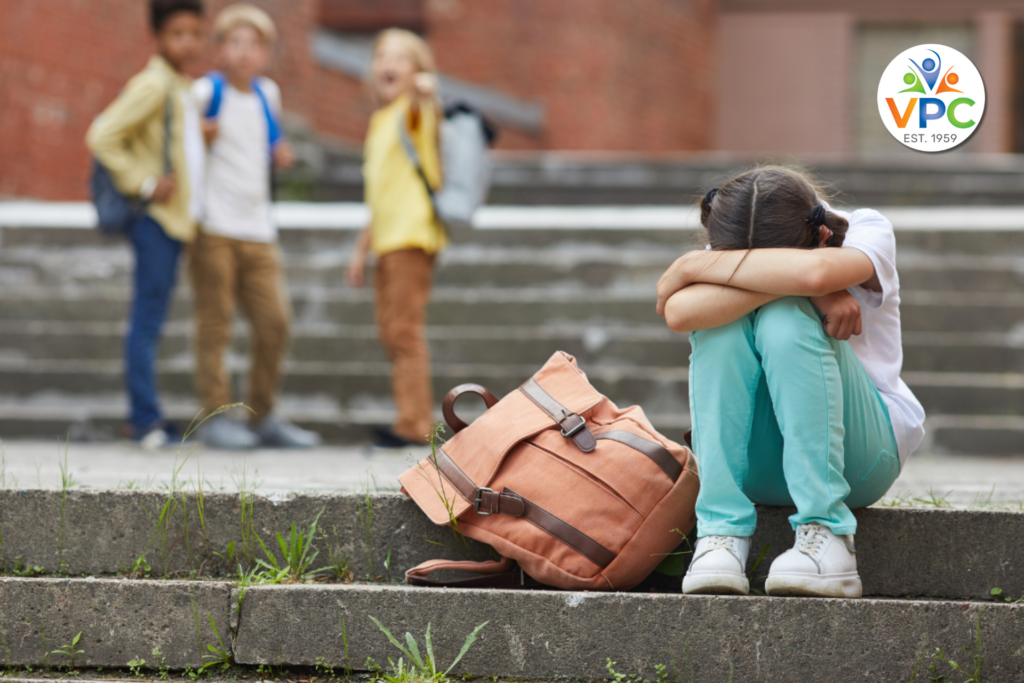
Bullying: how can you, as parents, respond if it happens to your child?
Bullying in Schools: Then and Now
Bullying in schools is not a new issue; it has existed since formal education systems emerged in the 19th century. In the early 20th century, bullying behaviours were largely unrecognised or dismissed, reflecting the social norms and educational priorities of the time, which often overlooked children’s emotional and psychological wellbeing.
Today, there is a global movement dedicated to addressing bullying. This has resulted in extensive research, educational programs, school-based initiatives, and policies aimed at reducing—and ideally eliminating—the issue. Despite these efforts, bullying persists. In fact, with the rise of the digital age, cyberbullying has emerged as a new and growing challenge, increasing the overall incidence of bullying.
Bullying is undeniably a complex problem that requires a multifaceted approach. In this blog, I offer a small yet meaningful suggestion for parents: a minor ‘tweak’ in how you respond when your child comes home and tells you they are being bullied. While these tips won’t solve the broader issue, they can help shift how your child feels during stressful moments. Helping them feel less anxious and upset creates the conditions for building resilience and working toward a more effective resolution.
Definitions:
What is bullying? Bullying is mean, aggressive, or unkind behaviour directed at another person by someone with more power than them, e.g., older, bigger, or part of a group. Bullying causes harm to another person, and this harm can be physical, such as bruising; social, such as causing the person to lose friends and be isolated; or psychological, such as contributing to anxiety and depression. For the behaviour to be called bullying, it must be repeated.
Stress is a response felt in your body due to events occurring in your environment. It is a normal part of life and ideally should ebb and flow in relation to different life challenges, your changing capacity, and how well-resourced or supported you feel, both personally and by others. The younger you are, the more sensitive you will be to stress. Children and young people have brains and nervous systems that are still developing, which means they require additional understanding and care.
A Scenario
Your 13-year-old son has recently started Year 7 at high school. The first few weeks seemed to go well, but now he’s become sullen and moody. At first, you think it might be typical teenage behaviour, but something feels off. When you ask him if everything is okay, he looks down and reluctantly tells you that a group of Year 9 boys has been pushing him and teasing him during recess and lunchtime.
Hearing this might bring up memories of your own experiences with bullying or remind you of another time your child faced something similar. Take a moment to pause and acknowledge how you feel. Notice any physical sensations—maybe a sick feeling in your stomach, tightness in your chest or throat, or even a desire to avoid thinking about it. These are natural stress responses, and recognising them can help you process your feelings.
Now, take a long, slow breath in and out. Remind yourself that everything will be okay. If your child is being bullied, the best thing you can do is remain calm. Deep, steady breathing activates your parasympathetic nervous system—often called the “rest and digest” system—which helps you feel more composed and in control. (you can read more about the breath, Here.)
When you stay calm, the problem-solving part of your brain remains accessible. This is crucial because your child may be unable to think clearly in the moment. Their brain is still developing—full maturity won’t happen until around age 25 to 30 years of age. Right now, they need access to your calmness and ability to think strategically.
Other thoughts to consider: and these things don’t all have to happen in the first 5 minutes.
- Acknowledge their feelings without being overwhelmed: Let your child know you understand how they feel, but stay calm and composed. They need you to be their steady, supportive presence during this difficult time.
- Gather the facts: Act as an investigator. Find out what happened, who was involved, how long it’s been going on, and what was said or done. Recording times, dates, and locations can also be helpful.
- Focus on the positives alongside addressing the negatives: While it’s important to address harmful behaviour, try to isolate the incident as a specific event involving certain people at a particular time. This helps prevent the situation from overshadowing all aspects of school life. Remind your child about the positive things they enjoy at school, like a favourite teacher or subject.
- Appreciate their trust: Thank your child for opening up about difficult things. When they feel safe sharing tough experiences with you, it strengthens your relationship and encourages ongoing communication.
- Work with the school: It’s important to involve the school in addressing bullying, as they are responsible for ensuring the safety and well-being of all students and staff. Your child may feel reluctant or embarrassed about you stepping in, which is a natural response. However, this is an opportunity to demonstrate the importance of open communication, problem-solving, and advocacy. By working collaboratively with teachers and school staff, you can help create a safe and supportive environment for your child while reinforcing the value of speaking up and seeking help when needed.
- Reassure them: Let your child know that resolving the situation may take time, but you are actively working on finding a solution together.
A final thought:
Bullying is a complex issue, and everyone experiences it differently. In stressful situations like this, it’s important for adults who are present to stay calm, think clearly, and respond in ways that help minimise the negative impact on the child or teen. How you react to your child’s experience with bullying sets an example for them. Strive to respond in a way that helps your child learn valuable lessons about themselves and others, fostering their growth into a more resilient and empathetic person.
Helpful links
https://www.aihw.gov.au/reports/children-youth/australias-children/contents/justice-safety/bullying
https://www.esafety.gov.au/key-topics/cyberbullying
https://bullyingnoway.gov.au/understanding/Documents/infographic-facts-figures.pdf
https://www2.education.vic.gov.au/pal/bullying-prevention-response/policy
Katrina Gow
Katrina is a compassionate and skilled counsellor dedicated to fostering mental health and resilience. In 2025, she will contribute her expertise as an advisor to a Deakin University project addressing school attendance issues, helping develop strategies for improving educational outcomes. Additionally, Katrina is part of the Victorian Parents Council team and writes insightful blogs for the VPC, offering support and guidance to parents navigating challenges in education and parenting. Through her work, she strives to create positive change in both individual lives and broader community settings.

